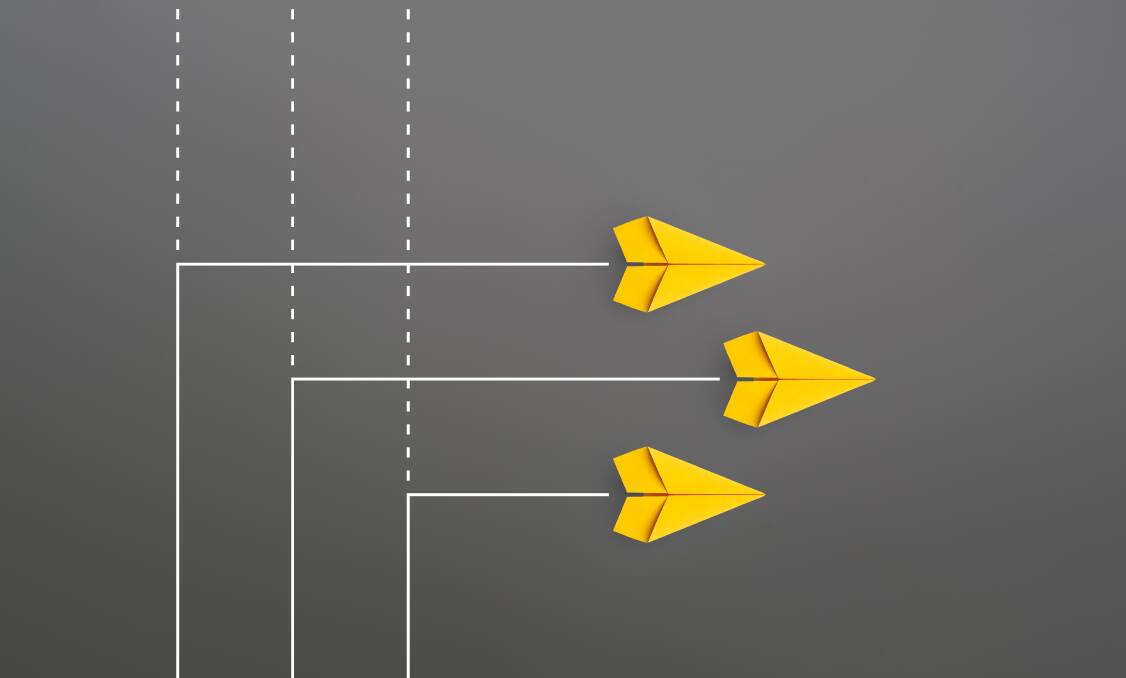
In the past two years of school, students have experienced the most disruptive period in education since war time. Drought, bush fires, floods and the pandemic have played havoc with our normal expectations of schooling.
Over those many months hero teachers and principals have guided our spectacular students through to graduation with great flexibility and creativity.
We hoped that the new year would bring an end to the pandemic and a return to 'normal.' Instead, we again find ourselves in a delicate balancing act as we start the 2022 school year. This will require our definitions of normal to be redefined.
Various school sectors and the public at large are in a quandary about how much we can safely go back to face-to-face learning versus the wear and tear of schooling from home and hybrid variations. The decision to open schools is bold, but it is the right one to move us forward and best serve all students.
As parents/carers prepare for the new school year and look to navigate these complex issues, I suggest we all think about and follow these recommendations:
- Continue to follow the science and take precautions
- Treat teachers as first responders to support the future of Australia
- Prepare our children for uncertainty
- Don't worry about kids "falling behind"
- Prioritise the needs of vulnerable students
- Take care of ourselves and enjoy the precious present with our kids - let's try to stop worrying and take school - and life - a day and a week at a time
As the Omicron variant wanes, new variations are likely to emerge. These variants may or may not be more severe, but, as of now, it seems we will be dealing with COVID 19 (SARS 2) as we do the seasonal flu. It is now an ongoing part of our lives. New boosters and treatments will emerge and we probably will be in a continuous cycle of new information and government responses for the foreseeable future. Let's let our tremendous scientific community guide us as to our best course of action, not Facebook, Instagram or Tiktok.
Teachers have been able to keep hope alive with their dedication and resilience using online, face-to-face and a 2020's hybrid combination to maintain learning - and the important caring and support aspects of the role of schools in our society. Our year 12 students have done about as well on their exams as we would have expected without the pandemic, which shows that there may not have been as much of a 'learning loss' as some predicted. So many other new ways of learning, teaching and assessing have catapulted us into portals, apps and different forms of engaging with the curriculum.
The ever-changing mandates, lockdowns, processes and systems of the past two years have taught us to be ready to do a 180 degree turn at a moment's notice. We should prepare our young people that this is "future normal".
Drought, fires, floods and pandemics will be followed by more drama at the global or local level. There are huge crises facing humankind. We should be building into our resiliency strategies the reality that plans are likely to change, new ways of doing our daily business will supersede how 'we've done it in the past,' and we will get through whatever comes our way. COVID may be a warmup act for the reality of dealing with climate change and negotiating very volatile political crises facing Australia in a world that has put those issues on pause during lockdowns. They are no longer on pause.
Many of our neighbours have been worried that our young people are falling behind. 'Falling behind what?' is my response. Any standard or list of objectives was thoughtfully but, in the end, arbitrarily created by a think tank or board and can be easily modified. Most of our kids are just fine if we help them be OK, and they are waiting for us to inspire them with new ways to work, learn and contribute.
It's been a difficult two years for many families negotiating learning with young people who have high-end support needs. Our most vulnerable students need us to continue to provide flexibility, adaptability and support to design suitable learning environments.
Children who are immunocompromised need the flexibility to learn remotely for a while longer. Students with disabilities need extra support during the transition back to mostly face-to-face learning.
Families of vulnerable children need to feel confident that schools will support their learning in whatever way possible as we work through this new sense of normal. Teachers and leaders have always done this, by the way, it's just our most vulnerable need us even more right now.
COVID has taught us to worry and most of us aren't the best versions of ourselves right now. As carers and supporters, we need to be kinder to each other. We need to take care of ourselves better. We need to move more and do the things that make us better people. We need to turn our devices off and get better sleep. Our children model our behaviours. If we are going well, they will be going well. Let's take this first few weeks of school and enjoy the precious present. We know things will change in a month. But right now we are going to make this a great 2022 school year with all the joys and challenges that growing and learning bring. And if we can get a good start, who knows, maybe, just maybe, later in the year we won't need to be swabbing and we'll be on to something else. There will always be something else. But we will be alright.







